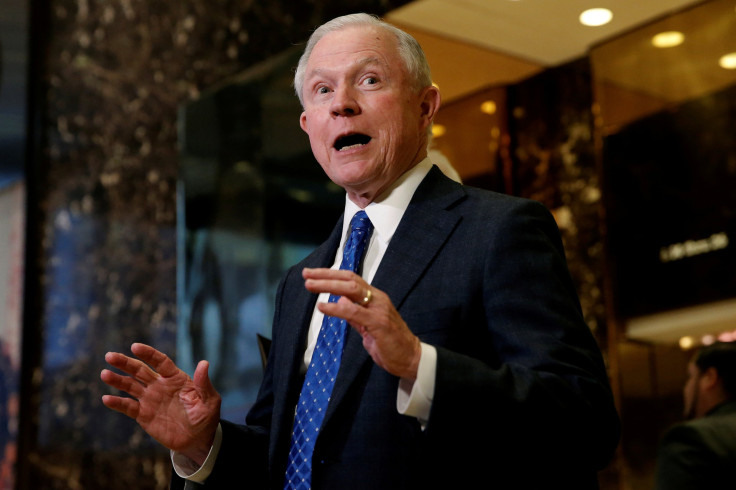Trump To Expand FBI, NSA Surveillance Powers? President-Elect, Appointees Could Increase Domestic Spying

Based on his campaign rhetoric and recent selections for some of the top security and law enforcement positions in the country, its possible President-elect Donald Trump could help the FBI, NSA and CIA expand their surveillance powers during his first term in office. A number of legislative measures are either currently under Congress’ consideration or will be by the end of next year, and there are fears Trump’s administration could reinstate surveillance gathering programs put in place following the Sept. 11, 2001 terrorist attacks, Bloomberg reported Tuesday.
Trump recently tapped Alabama Republican Sen. Jeff Sessions for attorney general and Kansas Republican Rep. Mike Pompeo to head up the CIA, both of whom are strong supporters of domestic electronic surveillance and data-gathering that has widely taken place between government agencies like the FBI and NSA and telecom and internet giants like Apple and Google.
The positions of both Sessions and Pompeo also seems to reflect that of GOP leader Trump. "When you have the world looking at us and would like to destroy us as quickly as possible, I err on the side of security," he said during the presidential campaign.
In February, Trump called for a boycott of Apple after the Silicon Valley leader faced criticism for refusing to help the FBI crack its iPhone operating system in order to gather evidence on the suspects in the San Bernardino shooting a year ago.
"Apple ought to give the security for that phone, OK. What I think you ought to do is boycott Apple until such a time as they give that security number. How do you like that? I just thought of it. Boycott Apple," Trump said at a South Carolina rally in February. "The phone's not even owned by this young thug that killed all these people. The phone's owned by the government, OK, it's not even his phone. But (Apple CEO) Tim Cook is looking to do a big number, probably to show how liberal he is. But Apple should give up, they should get the security or find other people."
Comments like those appear to reflect Trump's position for more surveillance, as do the continued tussling between government officials, technology leaders, and privacy advocates over amendments to Rule 41 of the Federal Rules of Criminal Procedure. Under the current rule, the FBI must obtain a warrant from a magistrate judge who has local jurisdiction before searching a phone, computer or other devices. But director James Comey told reporters in May that Rule 41 as it presently stands can be "problematic" for the agency since it is often difficult to pinpoint a device's exact location. The proposed amendments would allow the FBI to search millions of devices in order to find an alleged suspect without having to get a warrant each time.
The new surveillance process is slated to take effect Thursday. Eight senators, led by Oregon Democrat Ron Wyden, have introduced a bill, S. 3475, that calls for delaying the change until July to allow Congress to widely debate the potential measure.
Meanwhile, an existing law passed last year that has actually prohibited top agencies like the NSA from collecting vast swaths of personal information, or metadata, could see major push back from Pompeo. In September 2015, Congress passed the USA Freedom Act, denying the NSA previous powers to gather millions of Americans’ phone records.
“Those who today suggest that the USA Freedom Act, which gutted the National Security Agency’s metadata program, enables the intelligence community to better prevent and investigate threats against the U.S. are lying,” Pompeo, who was part of a minority of House Republicans in opposition to the act, wrote in a column for the National Review in December 2015.
© Copyright IBTimes 2025. All rights reserved.





















